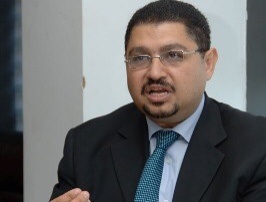Sudan says Iranian cultural centres threatened social and intellectual security
September 2, 2014 (KHARTOUM) – The Sudanese foreign ministry has attributed the government’s decision to close Iranian cultural centres in the capital, Khartoum, and other states due to the threat they posed to intellectual and social security in the country.

“It became necessary to take an official action against this centre, which has prompted the closure decision,” he said.
The Sudanese diplomat also confirmed that the Iranian charge d’affaires was summonsed on Monday and informed of the decision and their request that the Iranian cultural attaché and the staff at the centre leave the country within 72 hours.
It was notable that the statement did not attempt to affirm Sudanese-Iranian political ties which has irked Arab Gulf states in recent years.
Some Whatsapp groups however, quoted sources within the Iranian cultural chancellery as saying that its staff left for Tehran a month ago, adding that the centre did not receive a notice of closure and continues to carry out its activities as usual.
According to the same sources, the Iranian cultural chancellery does not have branches in Sudanese states other than Khartoum.
Some press reports have suggested that the Sudanese government’s decision was motivated by warnings made by religious circles, as well as the media about the spread of Shiite ideology among Sudanese youngsters, after the intensification of activities by the office of the Iranian cultural attaché in Khartoum.
Several religious forums had warned the Sudanese authorities against spread of the Shiite doctrine and considered it a serious threat that must be stopped.
A radical jihadist group under the name of “Hamza Group for Preaching and Jihad” issued a statement last month threatening the former managing director of Kenana Sugar Company Mohamed el-Mardi Tijani and religious cleric al-Nayel Abu-Guroon after accusing them of promoting the Shiite doctrine.
The Islamic Fiqh Council, which is part of the presidency, issued a statement carried by state media as well welcoming the decision.
The Islamic preacher, Isam Ahmed al-Bashir, who is a member of the council, posted in his Facebook page supporting the decision, saying the Iranian cultural centres continued to spread the Shiite doctrine by various means which poses a real danger to the intellectual and values security.
He called upon the government to make further actions to dry up sources of “this deviant ideology and promote the country’s Sunni doctrine and societal peace”.
The General Sufi Academy, for its part, described the decision as a step in the right direction to purify the religious arena from the deviant ideologies and remedy the unbalanced religious situation in Sudan.
The first Iranian cultural Centre in Sudan was inaugurated in 1988 during the era of the former prime minister, al-Sadiq al-Mahdi, but the Shiite tide has grown rapidly during the current rule of Omer Hassan al-Bashir particularly in light of its improved ties with Iran.
The deputy chairman of the General Sufi Academy, Abdel-Salam al-Kasanzani, underscored the need to take further actions to close all Shiite schools which spread “aberrance” in the society.
He pointed in statements on Tuesday that the closure decision is a culmination of the huge efforts made by the Sufi sect to curb the Shiite tide.
He was alluding to the confrontations led by the General Sufi Academy against activities of Sheikh al-Nayel Abu-Guroon to preach the Shiite faith in Sudan.
Abu-Guroon was recently prevented by the local authorities in the White Nile state from visiting the town of Shabasha for security reason following mass demonstrations which denounced the Shiite sect.
Al-Kasanzani said the government’s move deserves strong support despite its possible political implications.
He praised the authorities and demanded a similar action to curb the radical Wahabbi groups in order for the Sudan to maintain its position as a country of “Islamic moderation and tolerance”.
(ST)
